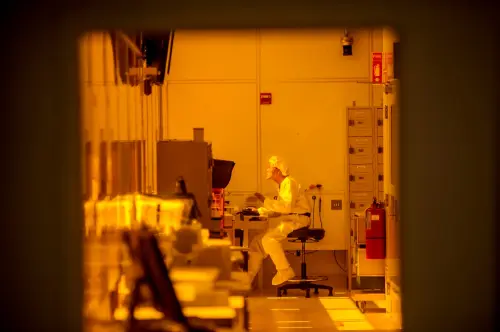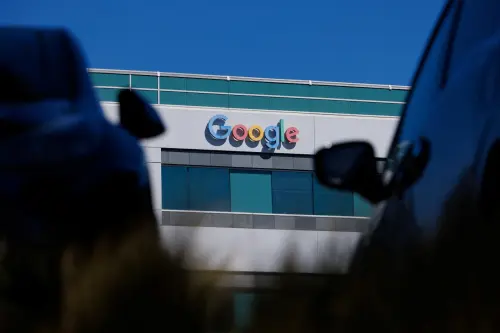Suppose that an AI system develops a trade secret that—at least initially—no person is aware of. Can this information qualify as a trade secret, despite no human knowing about it? In a law review article recently published in the North Carolina Journal of Law and Technology, I argue that the answer is “yes.”
Trade secrets
A trade secret is information that has actual or potential economic value from not being generally known to or readily ascertainable by others, and that the owner of the trade secret takes reasonable measures to keep secret. Famous examples of trade secrets include the formula for Coca Cola and the recipe for Kentucky Fried Chicken. In the U.S., trade secrets are protected under both federal and state laws.
While there can be criminal cases arising from government allegations of trade secret theft, the majority of trade secret legal disputes involve litigation between private parties. For instance, a company might file a complaint alleging that a departing employee has taken trade secret information and used it to launch a competing startup.
AI and trade secrets
AI systems raise an interesting set of questions regarding trade secrets, because they can generate economically valuable information that was not originally in the possession of their human designers.
Consider an AI system used by a pharmaceutical company to develop new drugs. Suppose that the AI system identifies a formula for potential new drug that it deems to be highly promising. At that moment in time—after the AI system has identified the formula but before any of the people who work at the pharmaceutical company have learned of it from the AI system, what are some reasons why the formula should qualify as a trade secret?
One reason is that trade secrets are defined in the negative, as information not generally known to others. There is nothing in the statutory definitions of trade secrets in federal or state law specifically requiring affirmative knowledge by the trade secret owner. In addition to this textual argument, there is also a practical one: If the formula known only to the AI system is not a trade secret, a rogue company insider who gains access to the AI system, learns the formula, and then sells it without authorization to a competing company would be immune from a misappropriation claim. The rogue insider would be able to argue, in essence, that the information wasn’t a trade secret and therefore its unauthorized acquisition and sale can’t constitute misappropriation. That’s a result that would defy common sense.
Another example: AI-based automated trading
Another example lies in the use of AI in relation to the financial markets. Suppose that a company develops an AI system for stock trading that learns as it acquires more data. Initially, the system makes trading decisions in accordance with algorithms provided by its human programmers. But as the system gets more data, the algorithms it is running could evolve. With the passage of time, the algorithms could become quite different from the ones originally present in the system.
Unless they look under the hood to ascertain the details of how the evolved algorithm is operating, the programmers who originally developed the AI system might no longer be able to explain exactly how it is making trading decisions. But the fact that no one, not even the programmers, knows how the evolved algorithm works shouldn’t prevent the algorithm from having trade secret status. After all, the algorithm is economically valuable, it obtains that value in part through the fact that it is not generally known, and it is the subject of efforts to ensure that unauthorized outsiders do not gain access to the AI system to learn how it is operating.
Asserting trade secret misappropriation
While owning a trade secret should not require human knowledge, the picture changes if the trade secret owner wishes to assert it in a misappropriation claim. To pursue a claim, the trade secret owner must be able to articulate the information constituting the trade secret.
In a 2021 federal appeals court opinion unrelated to AI, the Third Circuit, quoting a 1968 California state court ruling, explained that a trade secret plaintiff must describe the trade secret at issue “with sufficient particularity to separate it from matters of general knowledge in the trade or of special knowledge of those persons who are skilled in the trade, and to permit the defendant to ascertain at least the boundaries within which the secret lies.” Multiple other courts, both at the federal and state level, have applied similar standards.
In the context of trade secrets developed by AI systems, this means that if the owners of those AI systems ever wish to assert misappropriation, they won’t be able to simply tell a court “we’re not sure how the AI algorithm works, but it works well and the defendant has misappropriated it.” Instead, they will bear the burden of learning and then describing the details of how the algorithm works, so their allegations can be tested in court.
Trade secrets: Another area where AI intersects with IP law
Much of the attention to the intersection of AI and intellectual property law has focused on copyright and patents. There are important unresolved questions regarding whether training AI models using copyrighted content constitutes copyright infringement. There are also important open questions regarding the patentability of inventions created by AI. As the foregoing illustrates, trade secrets are another area where IP and AI intersect—and it’s a topic that will merit more attention as AI systems experience increasing adoption.
The Brookings Institution is committed to quality, independence, and impact.
We are supported by a diverse array of funders. In line with our values and policies, each Brookings publication represents the sole views of its author(s).







Commentary
Can AI systems create trade secrets that no human is aware of?
July 11, 2024